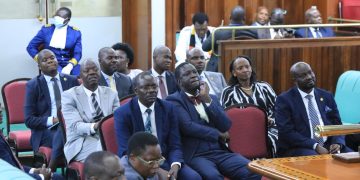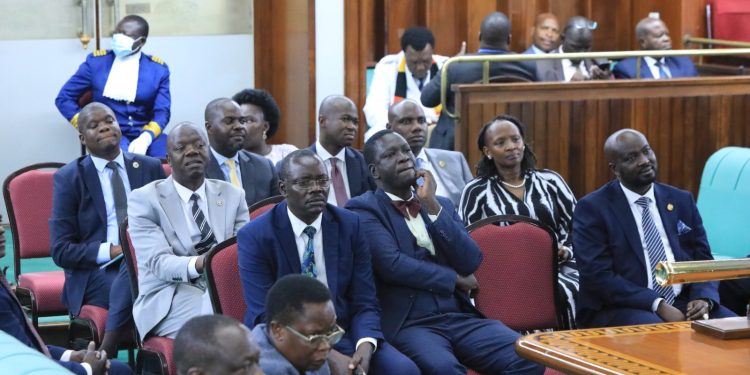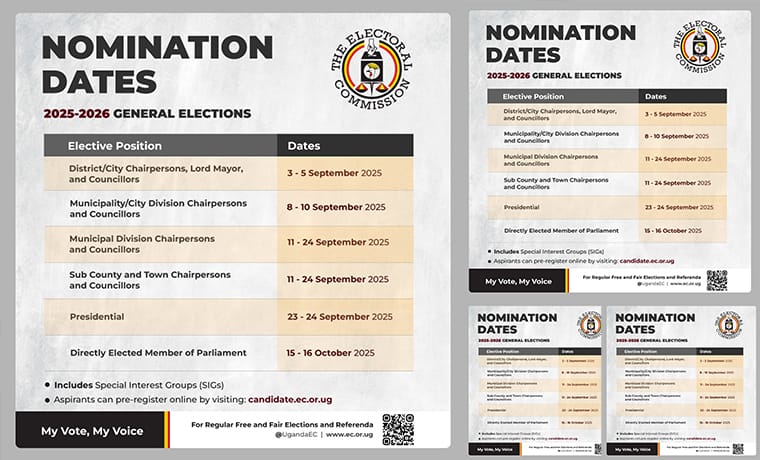By Mulengera Reporters
Parliament has passed the Employment (Amendment) (No.2) Bill, 2022, requiring employers to pay workers full salary and benefits for two months while on sick leave. However, a proposal to grant permanent employment status to casual labourers after six months of continuous work was rejected over concerns that it would deter investors.
The decision followed the reconsideration of the Bill on February 20, 2025, after President Museveni declined to assent to it, requesting amendments in a letter to the Speaker dated November 13, 2023. The President proposed amending Clause 10 of Section 55 of the Employment Act to replace “first month” with “two months”, ensuring that employees receive full pay and benefits for the first two months of sick leave.
The Chairperson of the Parliamentary Gender and Labour Committee, Agnes Kunihira, supported the amendment, stating, “The Committee observes that the amendment enhances clarity and recommends its adoption.
Clause on Casual Labourers
Parliament also agreed to remove Clause 34, which had been inserted in May 2023, granting casual workers permanent employment after six months. President Museveni argued that this provision would force employers to offer contracts to casual workers, leading to increased unemployment as businesses might avoid hiring casual labourers altogether.
The National Organisation of Trade Unions (NOTU) opposed the deletion, citing fundamental labour rights under the 1995 Constitution, the International Covenant on Economic, Social, and Cultural Rights (ICESCR), and ILO Convention 122. Kunihira defended the clause, noting that the Employment Act (Regulations) 2011 already prohibits casual employment beyond four months, after which a worker is entitled to a contract.
However, Speaker Anita Among questioned the feasibility of the provision, arguing, “How can six months of work automatically make someone a permanent employee? What happens if an industry operates for only seven months?”
Deputy Attorney General Jackson Kafuuzi warned that the provision could undermine job security, as employers might lay off workers after five months to avoid legal obligations. He added, “This contradicts the legal definition of a casual employee and could scare away investors.”
After debate, Parliament agreed to drop the provision, aligning with the President’s recommendation.
Registration of Foreign Recruitment Agencies
Another contested issue was Clause 1(e), which defined a “foreign recruitment agency” as one accredited by the Ministry of Gender, Labour, and Social Development. The President proposed that such agencies instead be accredited by Ugandan Missions abroad, as the Ministry lacks offices outside Uganda.
The Parliamentary Committee agreed, aligning the amendment with current practice, where foreign recruitment agencies are accredited by Ugandan Missions. Parliament adopted the proposal, ensuring consistency with the law.
Background
The Employment (Amendment) (No.2) Bill, 2022 was first read on December 6, 2022, while a similar Private Member’s Bill by Workers’ Representative Agnes Kunihira was tabled earlier on September 21, 2022. The two bills were later merged into the Employment (Amendment) Bill, 2022, which Parliament passed on May 25, 2023.
However, following the President’s objections, the Bill was reconsidered, leading to the adoption of sick leave benefits and the rejection of automatic permanent employment for casual laborer’s-Parliament Watch. (For comments on this story, get back to us on 0705579994 [WhatsApp line], 0779411734 & 041 4674611 or email us at mulengeranews@gmail.com).

































